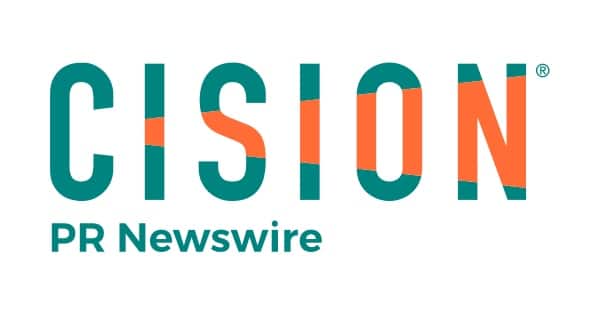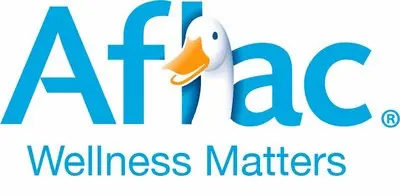9 out of 10 Americans have put off medical checkups and tests that could save their lives.
Aflac’s Wellness Matters survey reveals why many people avoid preventive care
COLUMBUS, Ga. , April 23, 2025 /PRNewswire-HISPANIC PR WIRE/ — April is National Cancer Prevention and Early Detection Month, an opportunity to highlight the importance of preventative care and the value of early detection. According to key data from the third annual Wellness Matters Survey 1 conducted by Aflac , the leading provider of supplemental health insurance in the United States 2 , 90% of Americans have avoided a routine doctor-recommended checkup or screening that could identify and treat serious diseases early. The report shows that, especially among younger people, factors such as fear of bad news, embarrassment, discomfort and inconvenience, logistical barriers, and distrust of doctors may be holding back these visits.
Health, on pause
Americans of all ages and generations are putting their health care on the back burner, in part because it’s not always easy to see a doctor, both logistically and emotionally. Survey data indicates that an alarming 94% face obstacles to getting medical checkups within the recommended timeframe.
- Generation Z reports feelings of shame and distrust towards doctors (32%).
- Nearly 1 in 4 young women, especially those from Generation Z, avoid medical checkups due to embarrassment or fear of a negative diagnosis.
- Forty-eight percent of Americans face logistical barriers such as scheduling conflicts or difficulty requesting time off from work.
- Nearly 40% have canceled or not even scheduled a medical appointment due to long wait times.
Among the most avoided preventive exams are: Pap smears (33%), prostate exams (32%), colonoscopies (32%), mammograms (31%), blood tests (31%), complete dermatological exams to detect skin cancer (27%), and tests for sexually transmitted diseases (22%). Millennials are the ones who avoid these checkups the most (62%), followed closely by Generation Z (61%).
Health care: reaction or prevention
The study highlights a contradiction between what people think and what they actually do. Although many know they should get regular health checkups, their actions suggest otherwise. In fact, 65% of respondents admitted to becoming aware of the importance of preventive care after experiencing a health scare. Paradoxically, those who believe they could be diagnosed with cancer are more likely to delay their medical examinations (62% vs. 42%).
That was the case for Tom Morey, senior vice president and chief actuary, who faced a sudden health crisis in his mid-20s that kept him away from work for nearly two years and in and out of hospitals for 18 months.
Where do Americans go—or not go—for health care?
Although emergency rooms and rapid-care centers serve a valuable function in society, the study shows that having a regular primary care physician is associated with a higher likelihood of getting routine checkups. However, nearly 1 in 5 Americans does not have a primary care physician who knows their medical history. The most common reason for not having one is “feeling unhealthy,” a perception that could lead to fewer preventive screenings and, in the long run, more complex and expensive treatments.
Forty-one percent of Americans, especially Gen Z (51%) and millennials (54%), primarily use emergency rooms or walk-in clinics for their medical needs. This pattern is most common among men (46%), African Americans (47%), Asian Americans (45%), and Hispanics in the U.S. (44%). In contrast, telemedicine has emerged as the preferred option among millennials and Gen Xers.
While younger generations continue to visit their doctors, they are also the most likely to seek advice from family, friends, and even social media before consulting a healthcare professional. Although the use of artificial intelligence (AI) is still in its early stages, interest is growing: 68% of Americans would be willing to use it in the future if they have a medical concern. Gen Z women in particular are more enthusiastic (82%) than their male counterparts (71%).
Gender differences in health care
Among Americans under 60, women are the most likely to report avoiding recommended medical screenings. This trend is echoed among women of all generations: Gen Z women (68% vs. 55% of men), millennials (63% women vs. 61% men), and Gen Xers (63% women vs. 54% men).
The survey also reveals a marked confidence gap between young men and women regarding their ability to manage their health. Only 63% of Gen Z women feel capable of managing their physical health, compared to 83% of men in the same group. The gap widens even further when it comes to mental health (51% of women vs. 71% of men) and financial health (49% vs. 71%, respectively).
Hispanics and African Americans value community support to take care of their health
When people perceive that their loved ones care about their health, they tend to do so too: 70% of those who trust that their loved ones value personal well-being prioritize their medical checkups, compared to 49% of those who don’t feel this support. Additionally, 86% of Hispanic men say they take action when a loved one motivates or insists they take care of their health, followed by African-American women (84%) and Hispanic women (83%). Overall, men (79%) are more receptive to this type of insistence than women (71%).
The study reveals that families who prioritize health tend to do so together. Many people consider their partner to be their greatest ally in staying healthy, after themselves. Fathers are vigilant about their children’s health, and more than 30% (or one-third) of Hispanics and more than 30% (or one-third) of African Americans cite their mothers as their greatest guardians of their health. As children grow, they also take on this responsibility and care for their parents. These allies play a fundamental role in prevention: among those diagnosed with cancer, 24% said it was because a loved one motivated them to get checked.
African Americans are more likely than other ethnic groups to receive a diagnosis during a routine checkup (34%) or at a referral from a loved one (32%). For many Americans, that kind of “nudge” makes a difference: 73% report feeling relief or gratitude when someone close to them urges them to go to the doctor for preventive care. This positive effect is even stronger among African Americans (83%), Hispanics (79%), Generation Z (78%), and millennials (77%).
The results of the Wellness Matters 2025 survey are available to consumers, healthcare providers, families, and industry professionals to educate and inspire them to build a healthier population. For more information or tips on taking control of your health and motivating others to do the same, visit Aflac.com/Wellness-Matters .
ABOUT AFLAC’S WELLNESS MATTERS 2025 SURVEY: The study was conducted by Kantar Profiles on behalf of Aflac, with a nationally representative sample of 2,000 employed U.S. adults, ages 18 to 65.
ABOUT AFLAC INCORPORATED: Aflac Incorporated (NYSE: AFL), a Fortune 500 company, has provided financial protection and peace of mind to millions of policyholders and customers for nearly seven decades through its subsidiaries in the U.S. and Japan. To learn how Aflac can help cover expenses not covered by health insurance, visit aflac.com or its Spanish version aflac.com/español



